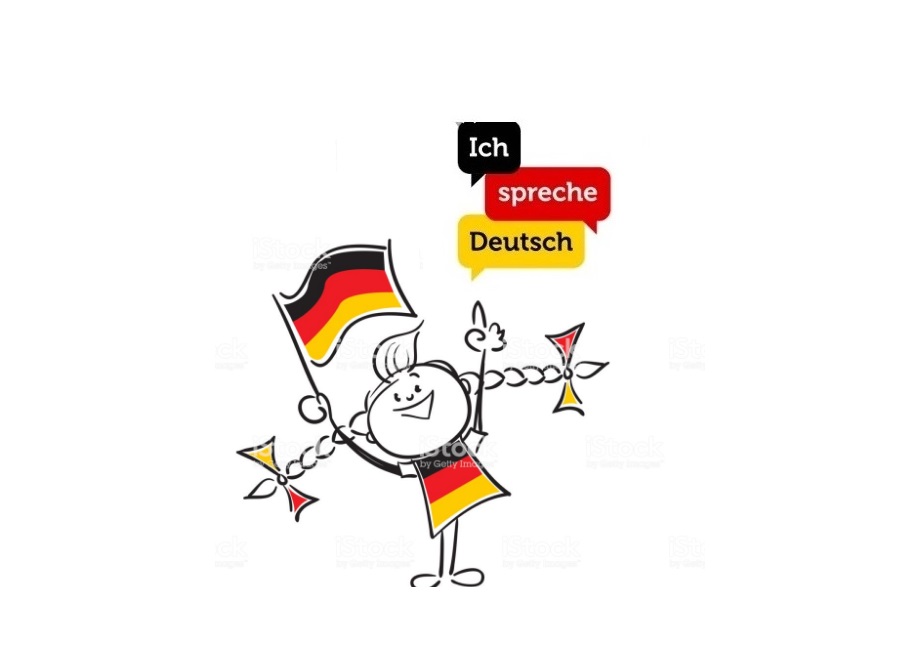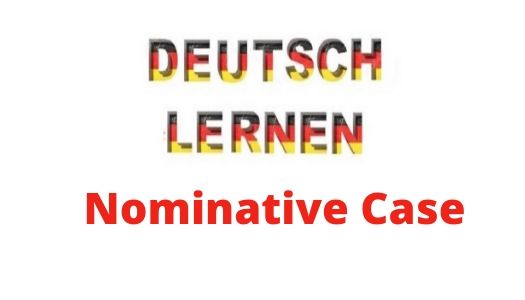Nominative case in german –Der Nominativ
Click here to test your German

Download our Best Learn German App

Nominative Case in german –Der Nominativ
The Nominative case is used when the noun is the subject of the sentence, that is, the person or thing carrying out the action or performing the action of the verb.
As already mentioned, word order isn’t very cruical in German, thus the subject of the sentence doesn’t always come first. To easily identify it, always ask yourself ‘Who or what is performing the verb?’
Endings in the Nominative case
Cases are important in German because they affect the form of the noun by altering the ending of the various words linked to it. The table below shows endings in the nominative case for the definite articles, indefinite articles, negative articles (discussed thoroughly in a later lesson), and possessive articles (articles like ‘my, your, his, our).
| Article Type | Masculine | Feminine | Neuter | Plural |
|---|---|---|---|---|
| Definite | der | die | das | die |
| Indefinite | ein | eine | ein | – |
| Negative | kein | keine | kein | keine |
| Possessive | mein | meine | mein | meine |
Personal Pronouns
Remember the pronouns you studied during the first unit? These were all in the nominative case (hence they were called subject pronouns), they are given here again for the sake of completeness.
| Singular Pronoun | Definition | Plural Pronoun | Definition |
|---|---|---|---|
| ich | I | wir | we |
| du | you – informal | ihr | you – informal |
| er/sie/es | he/she/it | sie | they |
| Sie | you – formal | Sie | you – formal |
Subject of the Verb
Remember that when a noun or pronoun is the subject of a sentence, it determines what kind of conjugational ending the verb needs. These endings were already thoroughly discussed in the previous unit.
Nominative case after certain verbs
The Nominative case comes after certain verbs no matter what role the noun plays, these verbs are ‘sein‘ (to be) & ‘werden‘ (to become).
For example:
- Das ist der Supermarkt – This is the supermaket
- Morgen wird ein besserer Tag – Tomorrow is going to be a better day
Clearly in both examples the noun isn’t performing the verb, however it’s still treated as a nominative due to the verb preceding it.
Interrogatives in the Nominative Case – Der Nominativ
In the nominative, the interrogative pronoun ‘wer‘ remains ‘wer‘, while the interrogative ‘welcher‘ is declined according to the noun it’s attached to, as shown below:
| Case | Masculine | Feminine | Neuter | Plural |
|---|---|---|---|---|
| Nominative | welcher | welche | welches | welche |
Examples
Here are a few example sentences in which the nominative nouns/pronouns are pointed out:
- Das Auto fährt sehr schnell – The car is driving very quickly
- Meine Mutter schreibt schön – My mother writes beautifully
- Du hast große Augen – You have big eyes
- Ich werde Lehrerin – I am becoming a teacher
- Das Geschenk ist ein Buch – The gift is a book
Click here to test your German

Download our Best Learn German App
|
|


